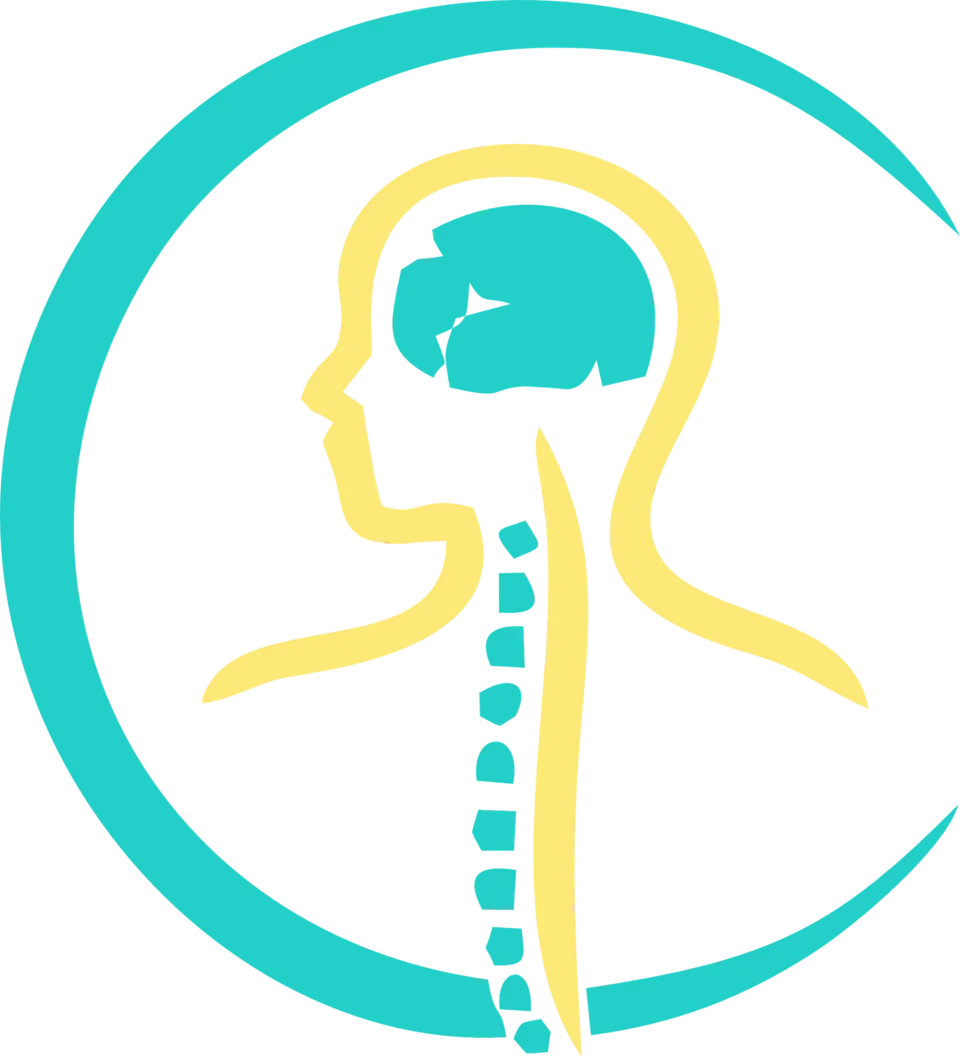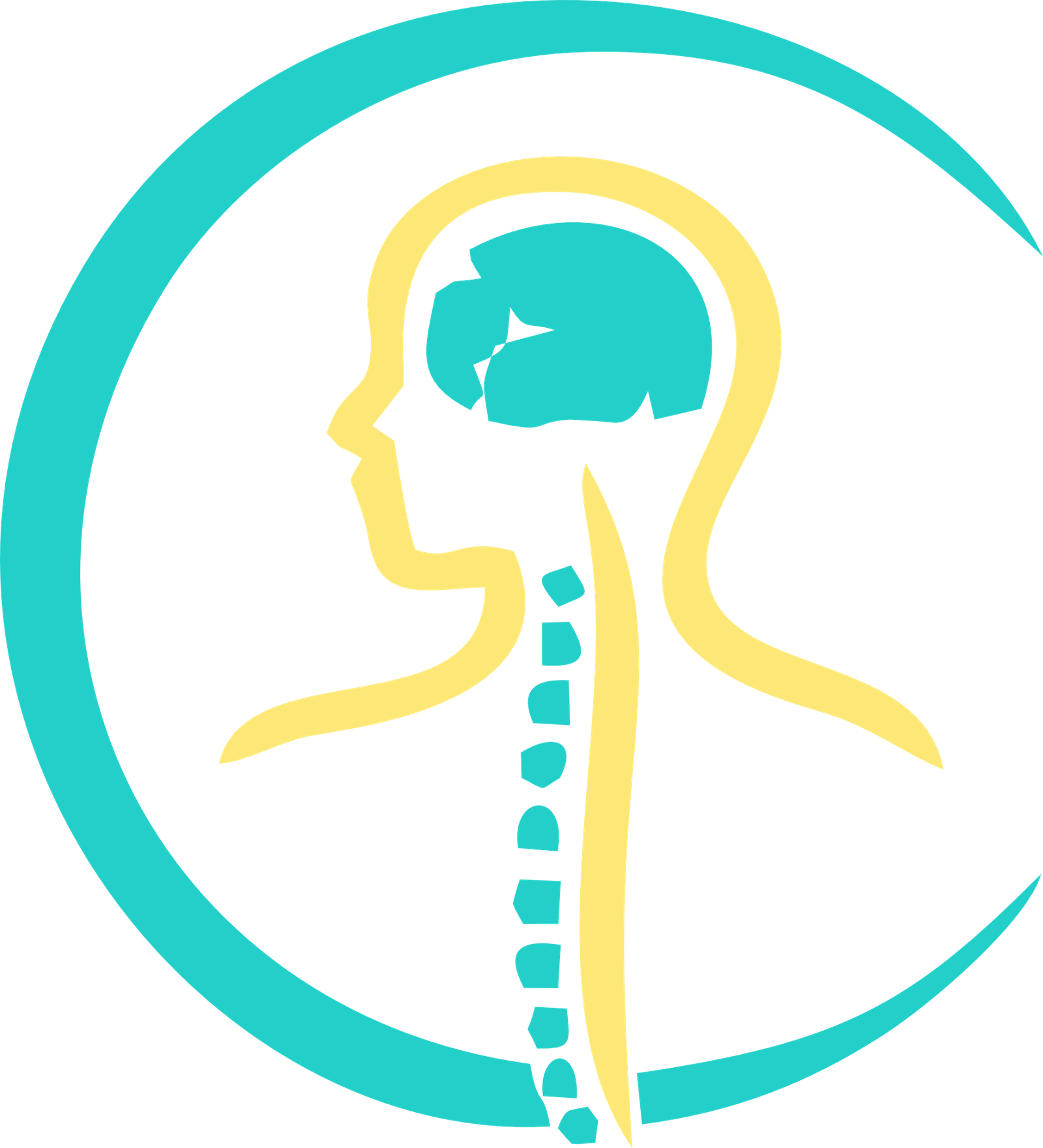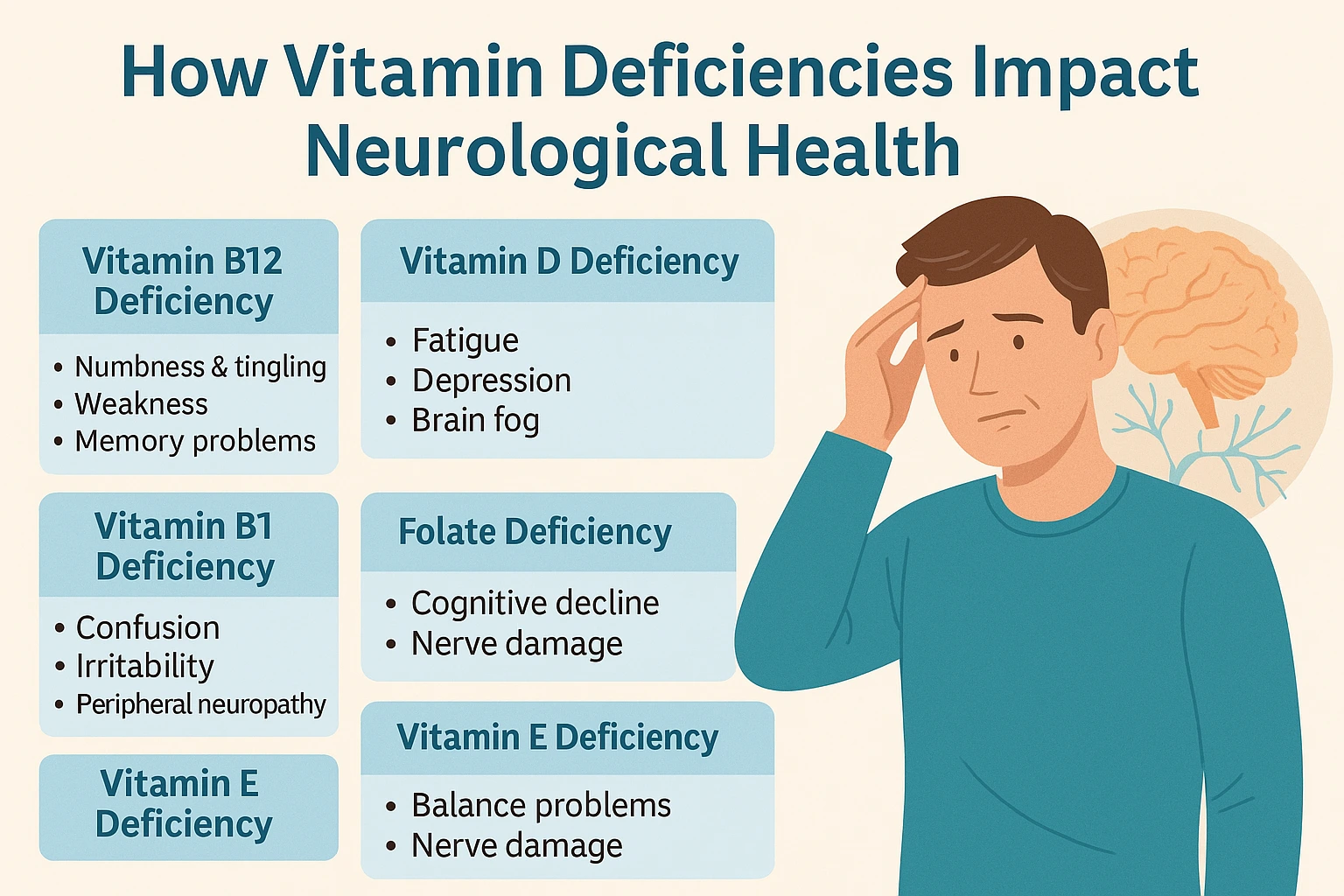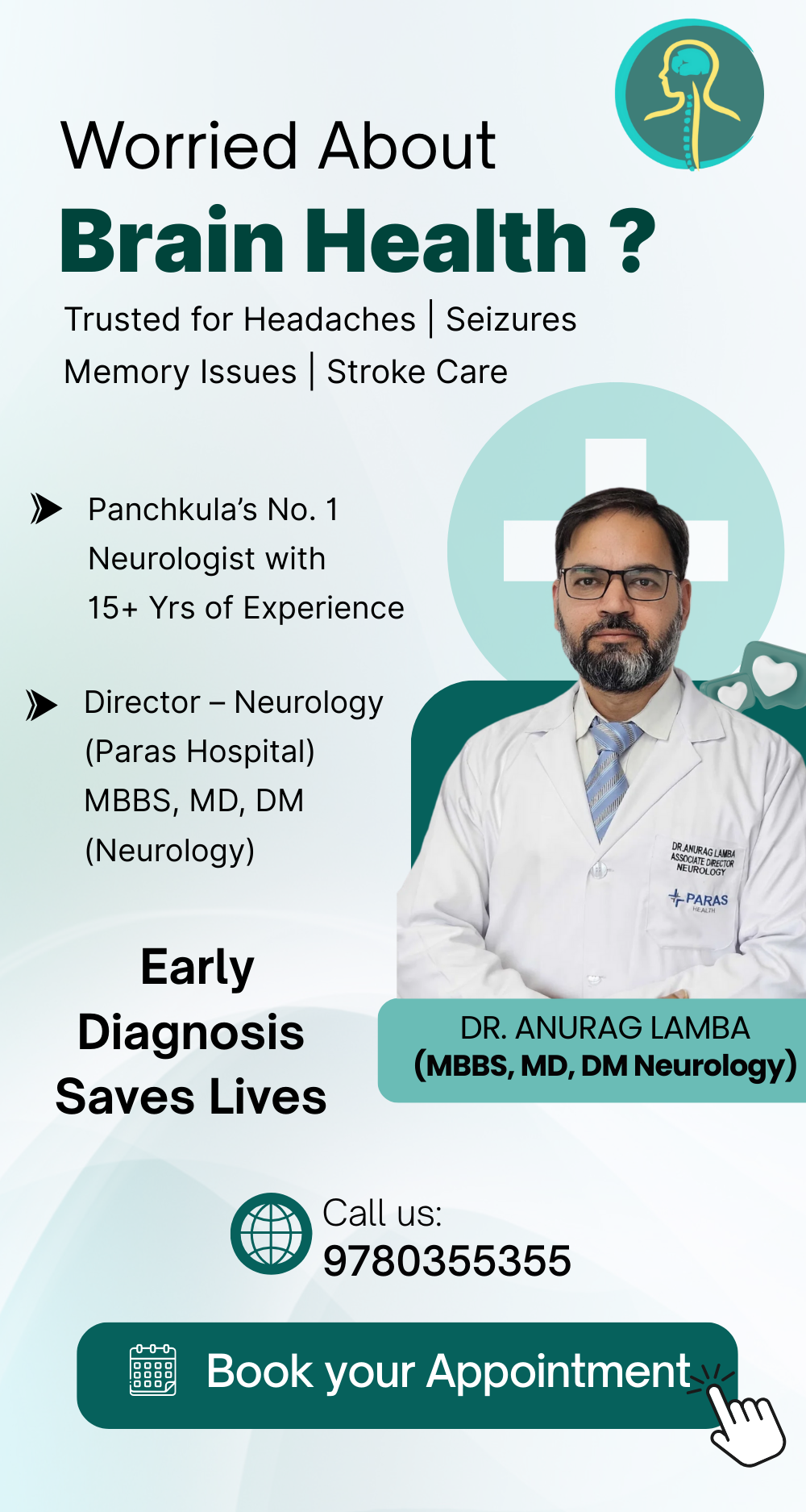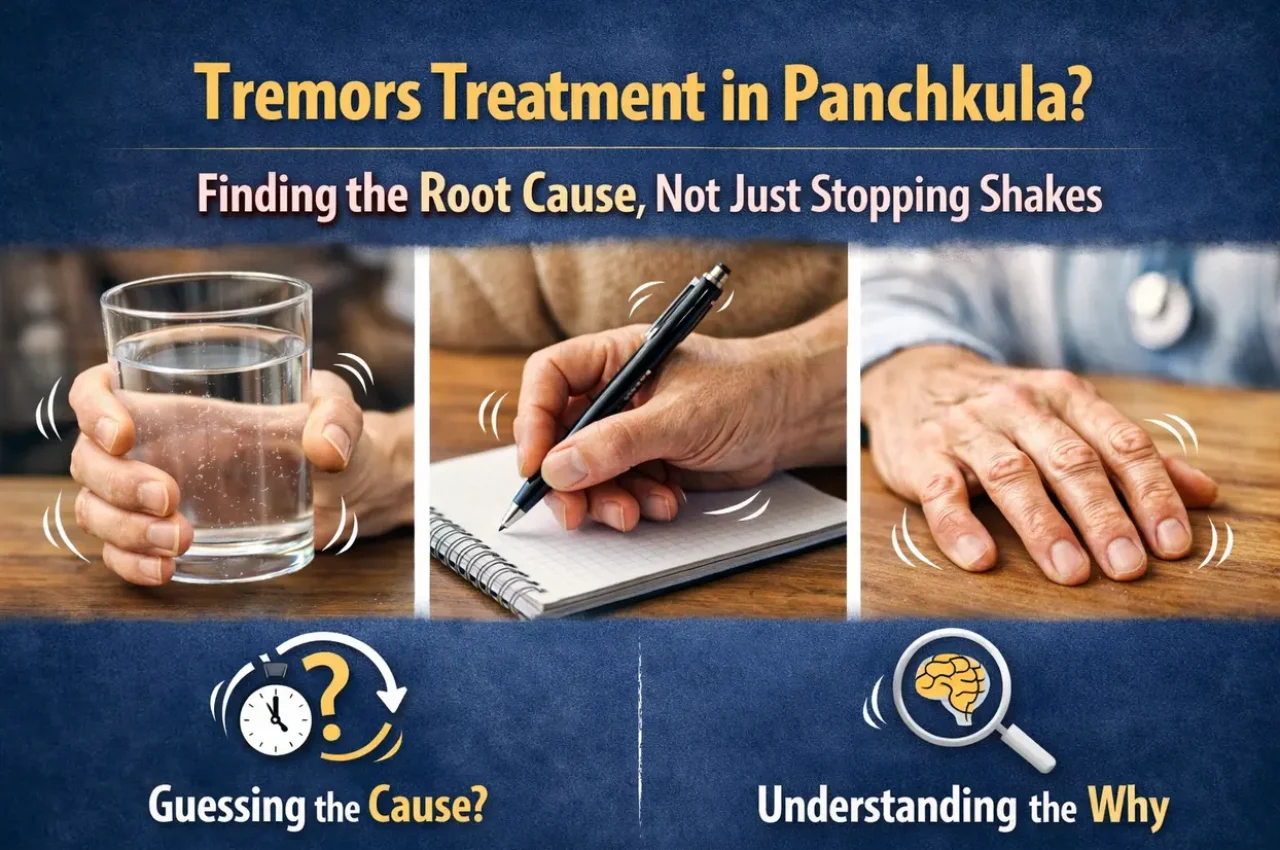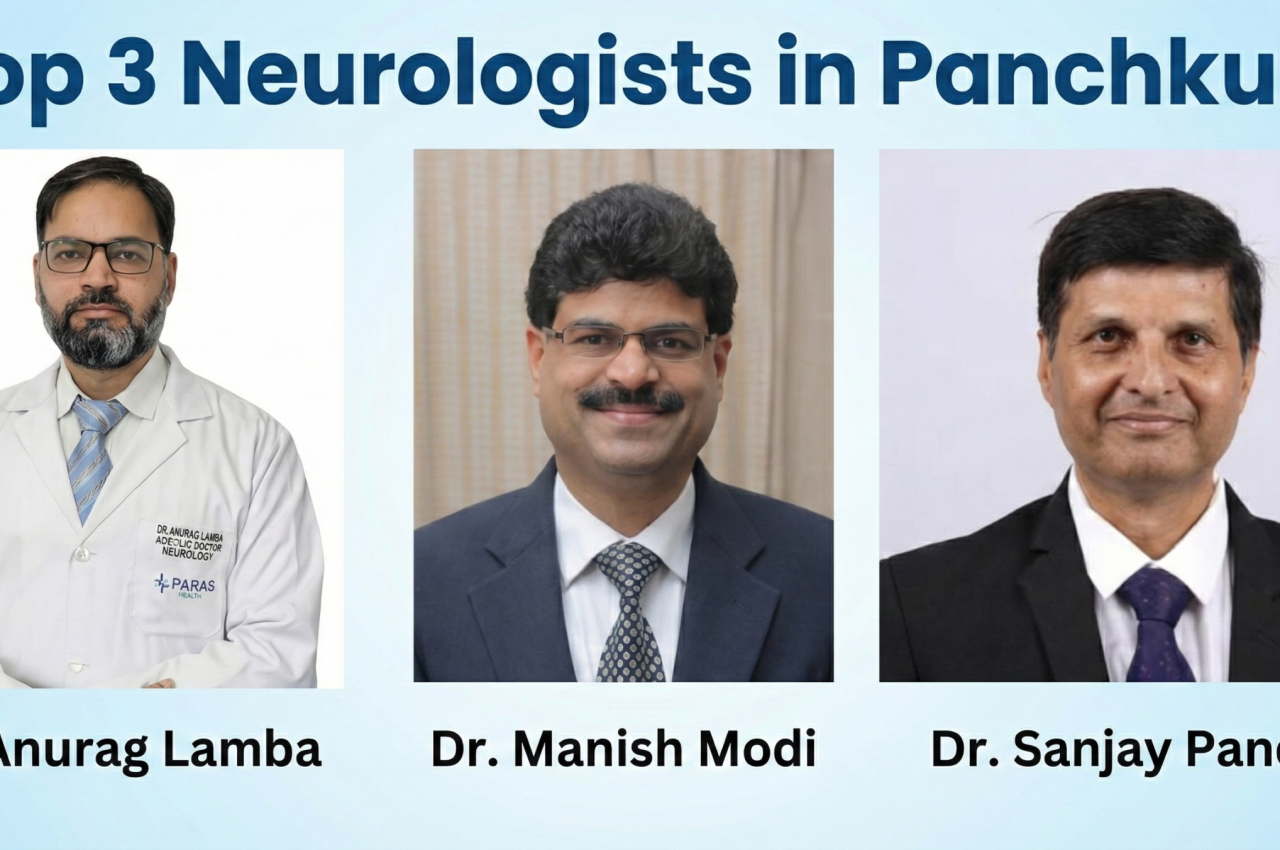Why Are Vitamins So Important for Your Brain and Nerves?
Vitamins aren’t just important for general health—they play a crucial role in brain function, nerve transmission, and mental clarity. Deficiencies in certain vitamins can mimic serious neurological disorders, causing symptoms like numbness, confusion, fatigue, and even mood swings.
At Dr. Anurag Lamba’s Neurology Clinic in Panchkula, we often see patients whose neurological symptoms are linked to underlying vitamin deficiencies—and early treatment can make a big difference.
Common Vitamin Deficiencies That Affect the Nervous System
Vitamin B12 Deficiency
Vitamin B12 is essential for nerve insulation (myelin sheath) and brain metabolism. A deficiency can cause:
- Numbness and tingling in hands or feet
- Fatigue or weakness
- Poor memory or concentration
- Gait imbalance or dizziness
- Mood changes and depression
Older adults, vegetarians, diabetics on metformin, or those with digestive issues are at higher risk. If untreated, B12 deficiency can lead to permanent nerve damage.
Vitamin D Deficiency
Vitamin D plays a role in mood regulation, nerve signal transmission, and protection against neurodegeneration. Deficiency may result in:
- Brain fog and fatigue
- Mood swings or depression
- Increased risk of multiple sclerosis (MS)
- Weak muscles or bone pain
In regions with limited sun exposure or in people who work indoors, low vitamin D is very common.
Vitamin B1 (Thiamine) Deficiency
Thiamine supports brain cell function and energy metabolism. Deficiency may lead to:
- Confusion or memory loss
- Muscle weakness
- Tingling or burning sensations in limbs
- In severe cases: Wernicke’s encephalopathy
Alcohol abuse, poor nutrition, and bariatric surgery patients are more vulnerable.
Folate (Vitamin B9) Deficiency
Folate is needed for DNA repair, nerve development, and red blood cell formation. Deficiency can cause:
- Irritability or low mood
- Poor focus
- Numbness and nerve tingling
- Anemia-related fatigue
Pregnant women are especially encouraged to maintain adequate folate levels to prevent neural tube defects in the baby.
Vitamin E Deficiency
Vitamin E is a powerful antioxidant. Though rare, its deficiency can lead to:
- Unsteady walking or balance issues
- Weakness and vision problems
- Nerve damage over time
This is more common in individuals with fat absorption disorders.
Warning Signs That May Point to a Deficiency
You may need to consult a neurologist if you experience:
- Frequent tingling or numbness
- Sudden mood changes without reason
- Memory lapses or difficulty focusing
- Muscle cramps or poor coordination
- Unusual fatigue
At Dr. Anurag Lamba’s Panchkula clinic, we conduct detailed neurological assessments and vitamin profiling to detect hidden deficiencies before they lead to permanent complications.
💡 Related Read: Explore more symptoms in Headache & Migraine: Causes, Symptoms, and Treatment Options
How Are Vitamin Deficiencies Diagnosed and Treated?
A neurologist may recommend the following:
- Blood tests to check B12, D, folate, and more
- Nerve conduction studies (if damage is suspected)
- Cognitive screening for memory issues
- Dietary analysis and supplementation plan
Treatment usually involves oral supplements, dietary correction, or in severe cases, vitamin injections. Addressing the root cause early can reverse nerve symptoms and prevent progression.
💡 Related Read: Understand broader care strategies in Best Neurologist in Panchkula: Key Services & Expertise
Tips to Prevent Vitamin-Related Nerve Issues
- Eat a balanced diet with green leafy vegetables, eggs, dairy, nuts, and whole grains
- Get 15–20 minutes of daily sunlight for vitamin D
- Avoid self-medicating—excess vitamins can be harmful
- If you’re vegetarian, diabetic, or post-surgery, get routine checks for B12 and folate
- Stay hydrated and reduce alcohol intake, which depletes nutrients
💡 Related Read: Curious about how other conditions impact nerves? See Managing Epilepsy: Medication, Lifestyle, and Counseling
Final Thoughts: Small Deficiencies, Big Impact
Sometimes what feels like anxiety, brain fog, or fatigue isn’t psychological—it’s neurological, and a simple vitamin test could reveal the root cause.
Don’t ignore the signs. Early correction of vitamin deficiencies can prevent long-term nerve damage and restore mental clarity.
📍 Clinic Address: Panchkula, Haryana
📞 Call Us: +91 9780355355
📅 Book an Appointment with Dr. Anurag Lamba
Stay informed. Follow our blog for more insights on brain health, lifestyle, and neurology care.
FAQ: Vitamins and Brain Health
1. Can vitamin deficiency cause permanent nerve damage?
Yes. Prolonged B12 or thiamine deficiency can result in irreversible neurological damage if not treated in time.
2. Is B12 deficiency common in vegetarians?
Yes, since B12 is mostly found in animal products. Vegetarians and vegans should consider supplements or fortified foods.
3. Can low vitamin D affect memory?
Low vitamin D has been linked to cognitive decline, depression, and poor focus in several studies.
4. How soon will I feel better after starting treatment?
Most people feel improvement in energy and focus within 1–4 weeks, but full nerve recovery may take several months.
